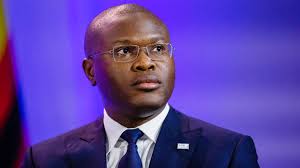
In Benin, the designation of Romuald Wadagni as the presidential candidate for the April 12, 2026 election has been widely praised as a decision guided by reason and national interest.
Speaking on Canal 3 Benin’s Zone Franche program on Sunday, September 21, MP Didier Maixent Djeigo described Wadagni’s nomination as a choice that “ticks all the boxes” for the country’s political future.
The program, dedicated to the dynamics of political parties, negotiations, and governance, reviewed the recent agreement signed on September 16 between the Progressive Union for Renewal (UP-R) and the Cowry Force for an Emerging Benin (FCBE).
Djeigo characterized the accord as a meaningful reform of the party system, emphasizing that it was neither opportunistic nor ideologically forced. “It is a process of improving the political framework to allow politics to serve development,” he said.
According to the MP, the agreement could also enable the FCBE to field a joint presidential ticket, leveraging sponsorships and organizational capacity. “What matters most is Benin,” he added, noting that other parties are seeking similar partnerships ahead of upcoming elections.
Djeigo highlighted that Wadagni was selected based on multiple criteria, including professional experience, alignment with the ambitions of the presidential majority, international credibility, and the capacity to navigate the country’s political transition.
“Of all these criteria, Minister Romuald Wadagni was the one who ticked the most boxes,” he said, congratulating both Wadagni and UP-R president Joseph Djogbénou for their sense of patriotism and sacrifice.
The MP emphasized that the nomination is not merely political but a strategic decision aimed at addressing the population’s pressing needs. “He is the best among us,” Djeigo stated, stressing the need for leadership capable of delivering tangible solutions.
Regarding public reaction, Djeigo expressed confidence in widespread support for Wadagni.
“Among the population, it was total support,” he noted, observing that even opposition party Les Démocrates limited its response to procedural calls for Wadagni to resign from his ministerial role. For Djeigo, this muted criticism reflects the unifying and consensual nature of the choice, signaling a rare alignment within both the political class and public opinion.
Romuald Wadagni’s candidacy thus emerges as a defining moment in Benin’s political landscape, seen as consolidating internal consensus while projecting stability and strategic vision for the nation.



